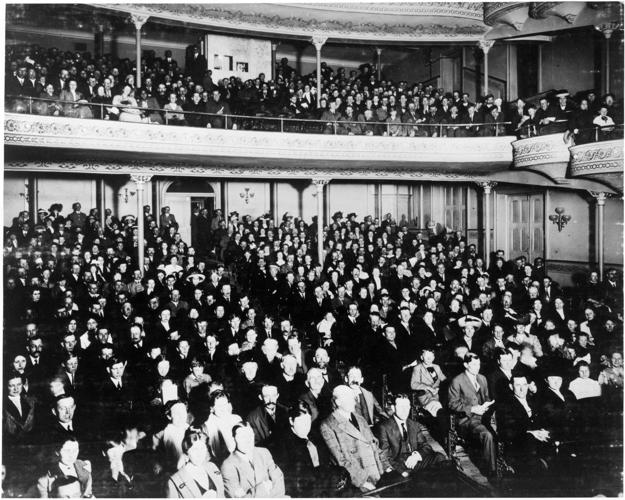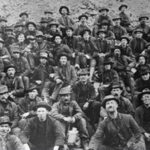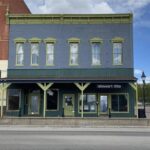Leadville has recently enjoyed a renaissance in the arts, with a growing scene of live performances, murals, and cultural happenings. But back in the rugged days of the Cloud City, high-brow entertainment wasn’t so easy to come by. Sure, a harmonica could add life to a fireside gathering, but it wasn’t until the discovery of rich gold and silver deposits that enough prosperity flowed to bring in refined entertainment. That’s when “Lead Vegas” truly rolled out the velvet rope.
By 1879, thanks to the immense wealth of Horace Tabor, Leadville was home to the largest opera house west of the Mississippi. This grand venue hosted international performers, renowned orators, and curious locals dressed in their finest. While the balcony held cheaper seats, most miners found their music in the lively saloons and dance halls scattered throughout town.
In those establishments, ragtag bands and solo musicians provided nightly amusement. Wandering fiddlers, guitar pickers, and accordion players drifted through, but it was the piano man who endured — night after night — through boom times and busts. Perhaps it was the size of his instrument that anchored him in place. Whatever the reason, the rhythmic clanking of ragtime on well-worn keys was often what drew customers in — and kept them there until sunrise.
Then came the night in 1883 when the polished world of opera collided with the grit of the saloon. The resulting tale gave birth to one of the most famous expressions of the Old West:
“Please don’t shoot the piano player; he’s doing the best he can.”
Oscar Wilde Hits the West
Yes, like so many great yarns, this one also begins in Leadville. It was 1883 when Oscar Wilde, the sharp-witted British author and orator, rolled into town. Wilde was on a speaking tour, and his appearance filled the luxurious Tabor Opera House with curious high-society elites. But it wasn’t just the upper crust that was interested in him — the town’s miners had plans of their own.
To everyone’s surprise, Wilde accepted an invitation to descend into a Leadville silver mine. In true frontier style, he rode to the depths of the earth in a mining bucket, where he enjoyed a hearty meal, sipped whiskey, and puffed on a cigar with the workers. As Wilde later recounted:
“Then I had to open a new vein, or lode, which with a silver drill, I brilliantly performed, amidst unanimous applause. The silver drill was presented to me and the lode named ‘The Oscar.’ I had hoped that in their simple grand way they would have offered me shares in ‘The Oscar,’ but in their artless untutored fashion they did not. Only the silver drill remains as a memory of my night at Leadville.”
Saloons, Slogans & Silver Tongues
But the story doesn’t end there. After the mine tour, Wilde and his miner companions returned to downtown Leadville and stopped at the iconic Silver Dollar Saloon, just across from the opera house. It was there that Wilde spotted a sign on the wall:
“Please don’t shoot the pianist; he is doing his best.”
This now-legendary phrase may have appeared in various versions — sometimes referencing an organist or fiddler — but Wilde’s account helped popularize this specific wording. The saying caught on across the American West, becoming a humorous fixture in saloons, and even some churches, as a reminder to temper criticism with mercy — especially when it came to live music.
Wilde, ever the observer, later shared this anecdote with British audiences during his “Impressions of America” lecture tour:
“I was struck with this recognition of the fact that bad art merits the penalty of death, and I felt that in this remote city, where the aesthetic applications of the revolver were clearly established in the case of music, my apostolic task would be much simplified, as indeed it was.”
A colorful observation, to say the least.
From Frontier to Footlights
In a time when one poorly played tune could be a matter of life or death (at least figuratively), the piano man had a tough gig. Entertainment in Leadville was hard-won — and still is in many ways. That’s why today’s musicians, like those ragtime pioneers of the past, deserve our support and applause.
So next time you’re in Leadville — whether you’re at a lively bar, community concert, or quiet gathering — remember the spirit of Oscar Wilde’s legendary night. And more importantly:
Tip your musicians, don’t shoot them.














